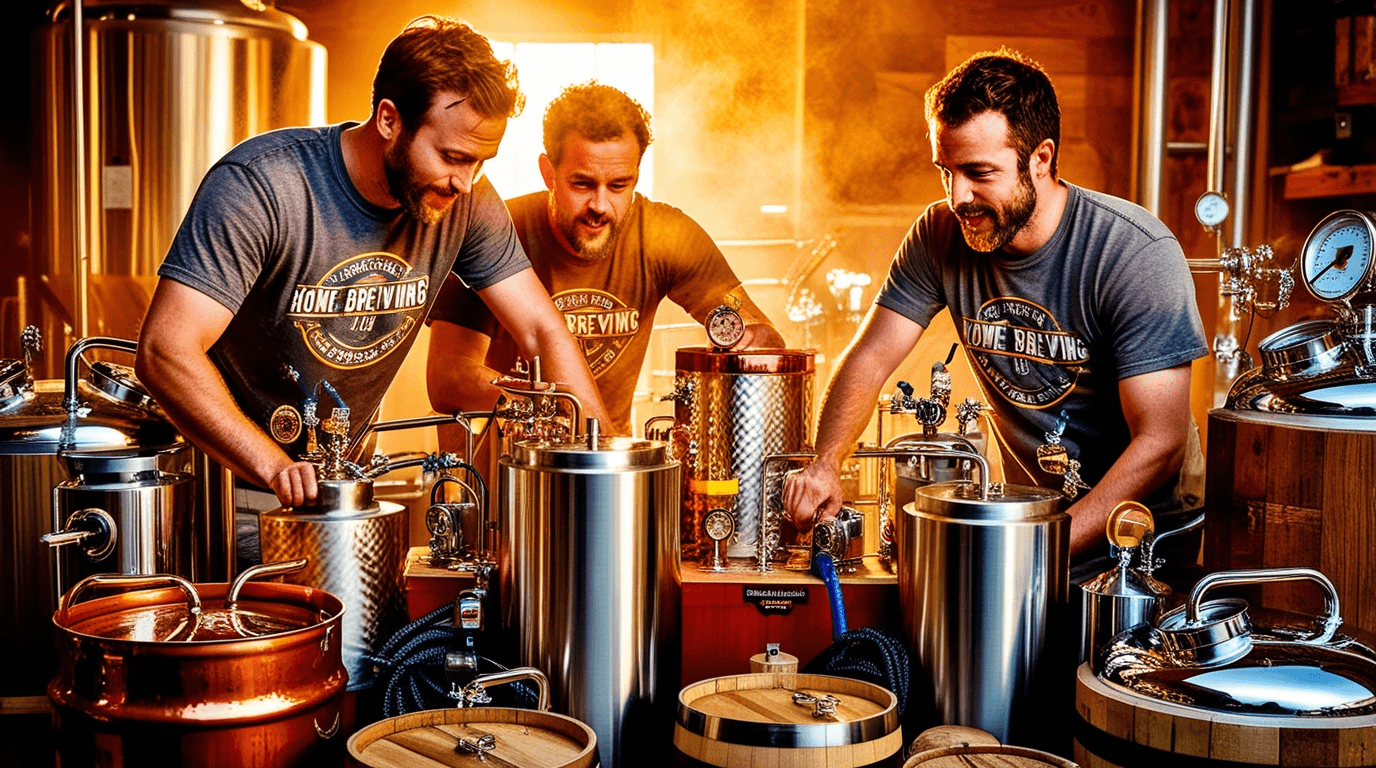Home Brewing: Crafting Your Perfect Pint
Jul 3, 2024
Home brewing has experienced a renaissance in recent years, with enthusiasts rediscovering the joy of crafting their own unique beers. This age-old practice allows beer lovers to explore flavors, experiment with ingredients, and create personalized brews tailored to their tastes. Whether you're a curious beginner or an experienced brewer looking to refine your skills, the world of home brewing offers endless possibilities.
The Basics of Home Brewing
At its core, home brewing involves four main ingredients: water, malted grains, hops, and yeast. The process begins with steeping grains in hot water to extract sugars, creating a sweet liquid called wort. This wort is then boiled with hops, which add bitterness, flavor, and aroma to the beer. After cooling, yeast is added to ferment the sugars into alcohol, creating the final product - beer.
There are typically three approaches to home brewing, each offering increasing levels of control over the finished product:
1. Kit brewing: The simplest method, involving pre-hopped malt extract. Just add water and yeast.
2. Extract brewing: Uses malt extract but allows for customization with different hops and yeast strains.
3. All-grain brewing: The most advanced method, starting from scratch with malted grains.
For beginners, kit brewing or extract brewing are excellent starting points. As you gain experience and confidence, you can transition to all-grain brewing for complete control over your beer's characteristics.
Essential Equipment
To start your home brewing journey, you'll need some basic equipment:
* Brewing kettle
* Fermentation vessel (carboy or bucket)
* Airlock and stopper
* Thermometer
* Hydrometer
* Bottling bucket
* Bottles and bottle caps
* Sanitizer
Investing in quality equipment from the start can help ensure better results and a more enjoyable brewing experience.
The Importance of Sanitation
One of the most critical aspects of home brewing is maintaining proper sanitation throughout the process. Contamination by unwanted bacteria or wild yeast can ruin an entire batch of beer. Always clean and sanitize all equipment that comes into contact with your beer after the boiling stage.
Choosing Your Recipe
For your first brew, it's advisable to start with a simple recipe. Ales are generally easier to brew than lagers, as they ferment at room temperature and don't require special equipment for temperature control. Popular styles for beginners include:
* American Pale Ale
* English Bitter
* Irish Red Ale
* Brown Ale
As you gain experience, you can experiment with more complex styles and even create your own recipes.
The Brewing Process
1. Mashing (for all-grain brewing): Steep crushed grains in hot water to extract fermentable sugars.
2. Boiling: Boil the wort, adding hops at specific intervals for bitterness, flavor, and aroma.
3. Cooling: Rapidly cool the wort to prevent contamination and off-flavors.
4. Fermentation: Add yeast to the cooled wort and let it ferment for 1-2 weeks.
5. Bottling or kegging: Transfer the beer to bottles or a keg, adding priming sugar for carbonation if bottling.
6. Conditioning: Allow the beer to condition for a few weeks to develop its full flavor profile.
Advanced Techniques
As you progress in your home brewing journey, you may want to explore more advanced techniques:
* Water chemistry adjustments
* Yeast starters
* Dry hopping
* Barrel aging
* Fruit and spice additions
These techniques can help you create more complex and nuanced beers, pushing the boundaries of your brewing skills.
The Rise of Craft Breweries from Home Brewing Roots
Many successful craft breweries have humble beginnings in home brewing. James Watt and Martin Dickie, founders of BrewDog, started by brewing small batches in their garage. James Kemp of Thornbridge Brewery honed his skills through 20 years of home brewing before turning professional.
In the United States, home brewing has had a significant impact on the craft beer scene. Sam Calagione of Dogfish Head, Ken Grossman of Sierra Nevada, and Garrett Oliver of Brooklyn Brewery all started as home brewers before launching their successful breweries.
This transition from home brewing to professional brewing has contributed to the diversity and innovation seen in the craft beer market today. Home brewers often bring fresh perspectives and a willingness to experiment with unconventional ingredients and techniques.
The Home Brewing Community
One of the most rewarding aspects of home brewing is the vibrant and supportive community surrounding it. Home brewers often share recipes, tips, and experiences through online forums, local clubs, and competitions.
Competitions, such as the National Homebrewer's Conference in the US, provide opportunities for home brewers to showcase their skills and receive feedback from experienced judges. These events can be invaluable for improving your brewing techniques and connecting with fellow enthusiasts.
Sustainability and Cost-Effectiveness
Home brewing can be an environmentally friendly hobby. By brewing your own beer, you reduce packaging waste and transportation emissions associated with commercial beer production. Additionally, you have control over the sourcing of your ingredients, allowing you to choose organic or locally produced options.
While the initial equipment investment can be significant, home brewing can be cost-effective in the long run. The per-bottle cost of home-brewed beer is often lower than store-bought craft beers, especially for more exotic styles.
Continuous Learning and Experimentation
The beauty of home brewing lies in its endless potential for learning and experimentation. Each batch is an opportunity to refine your process, try new ingredients, or attempt a different style. Many home brewers keep detailed logs of their brews, noting variables like temperature, ingredient ratios, and fermentation times. This methodical approach allows for continuous improvement and consistency in future batches.
Conclusion
Home brewing is more than just a hobby; it's a craft that combines science, art, and passion. Whether you're drawn to the creative aspects of recipe development, the technical challenges of perfecting your process, or simply the satisfaction of sharing your creations with friends and family, home brewing offers a rewarding experience for beer enthusiasts of all levels.
As you embark on your home brewing journey, remember that patience and attention to detail are key. Don't be discouraged by initial setbacks - even experienced brewers occasionally produce a less-than-perfect batch. With practice, persistence, and a willingness to learn, you'll soon be crafting beers that rival or even surpass commercial offerings.
So, gather your equipment, choose your recipe, and start brewing. Your perfect pint awaits!





